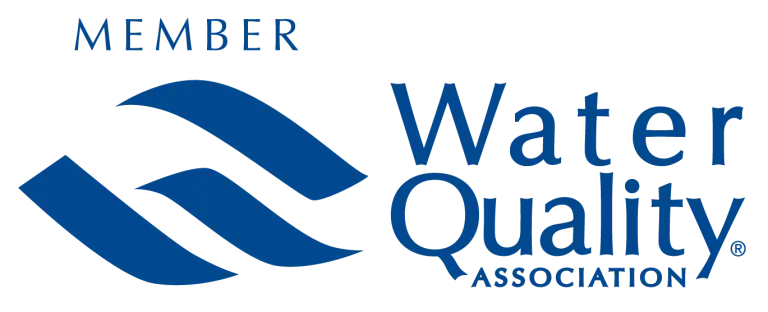Tank Liners: Professional Installation & Replacement

Professional Installation Tank Liners
Raven American Tanks provides high-performance tank liners designed to protect water, chemical, and industrial storage systems from corrosion, leaks, and internal deterioration. Our team delivers complete installation and replacement services for steel, concrete, poly, timber, and GRP-panel tanks across the United States.
If your tank is showing signs of wear, contamination, or internal corrosion, our tank liner solutions offer a fast, long-term, and cost-effective way to restore full functionality without the need for tank replacement.
Why Choose Our Tank Liner Systems
Our engineered lining systems deliver durable protection for a wide range of industries and storage applications. Each liner is professionally measured, fabricated, and fitted to ensure superior performance.
Benefits of our tank liners include:
- Long-term internal corrosion prevention
- Seam-welded construction for watertight performance
- Safe for potable water (NSF-61 compliant materials available)
- Compatible with most tank types and shapes
- Excellent resistance to UV, chemicals, and abrasion
- Fast installation with minimal downtime
- Extended tank lifespan and reduced maintenance costs
Comprehensive Tank Lining Services
We install and replace tank liners for facilities requiring reliable protection for:
- drinking water storage
- fire protection systems
- agricultural and irrigation tanks
- industrial process water
- food-grade liquids
- wastewater and greywater
- manufacturing and commercial applications
These applications ensure our liners deliver consistent protection and long-term performance across a wide range of tank environments.

Types of Tank Liners We Install
Raven American Tanks provides a full range of high-performance tank liners designed for water, industrial, commercial, and fire protection storage. Our liners are engineered for leak prevention, corrosion protection, and long-term durability. We supply and install:
- Potable water tank liners – safe for drinking water applications
- Industrial tank liners – resistant to chemicals and high-demand environments
- Commercial tank liners – suitable for facilities requiring long-lasting protection
- Fire water tank liners – compliant with fire storage requirements and AS standards
- Custom-fabricated liners – manufactured for irregular or oversized tanks
More information about PVC membrane systems is available on the related page.
Our Tank Liner Installation Process
We follow a strict installation process to ensure every liner performs as expected from day one:
1. On-site tank assessment
Inspection of tank structure, surfaces, fittings, and access points.
2. Precise measurement & fabrication
Custom patterning ensures an accurate, secure liner fit.
3. Surface preparation & cleaning
(Optional) High-pressure cleaning for better hygiene and longer liner lifespan.
4. Drop-in installation
A controlled placement method allowing quick installation without major downtime.
5. Seam welding & final checks
All seams are tested for durability, watertightness, and compliance with storage requirements.
Most liners can be installed or replaced within one day, depending on size and accessibility.
When to Replace a Tank Liner
Your tank may require a new liner if you notice:
- water discolouration
- visible folds, cracks, or punctures
- signs of rust on the internal shell
- contamination concerns
- water level loss or slow leaks
- worn seams or aging material
For information on addressing liner damage, see the page dedicated to repair services.
Industries We Serve
Raven American Tanks supports a wide range of facilities and sectors, including:
- education: schools, universities, laboratories
- healthcare: hospitals, clinics, aged-care facilities
- commercial and industrial sites
- mining and energy
- government and public infrastructure
- sports venues and recreation facilities
With over 20 years of experience, we deliver reliable tank lining solutions tailored to each site’s operational needs. Need a new tank liner or considering replacement?
Our team will assess your tank and recommend the best solution for safe and long-lasting performance.

FAQ
What is the best tank liner for water storage?
Potable-grade liners are specifically designed for drinking water storage. They prevent contamination, protect tank walls from corrosion, and offer long-term durability for concrete and steel tanks.
Can a tank liner be repaired instead of replaced?
Yes. Minor tears, seam issues, or small leaks can often be repaired. If the liner has extensive wear or structural damage, replacement is the most reliable long-term solution.
How long do tank liners typically last?
Most high-quality tank liners last between 10 and 20 years, depending on material type, water quality, temperature, and usage conditions.
What types of tanks can be fitted with a liner?
Tank liners can be installed in concrete, steel, fiberglass, and older welded or bolted panel tanks. They are commonly used in fire water tanks, potable water tanks, process tanks, and industrial wastewater storage.
Nationwide Tank & Silo Services
Whatever your storage requirements, our liners ensure cleaner operation, safer performance, and greater structural longevity.






